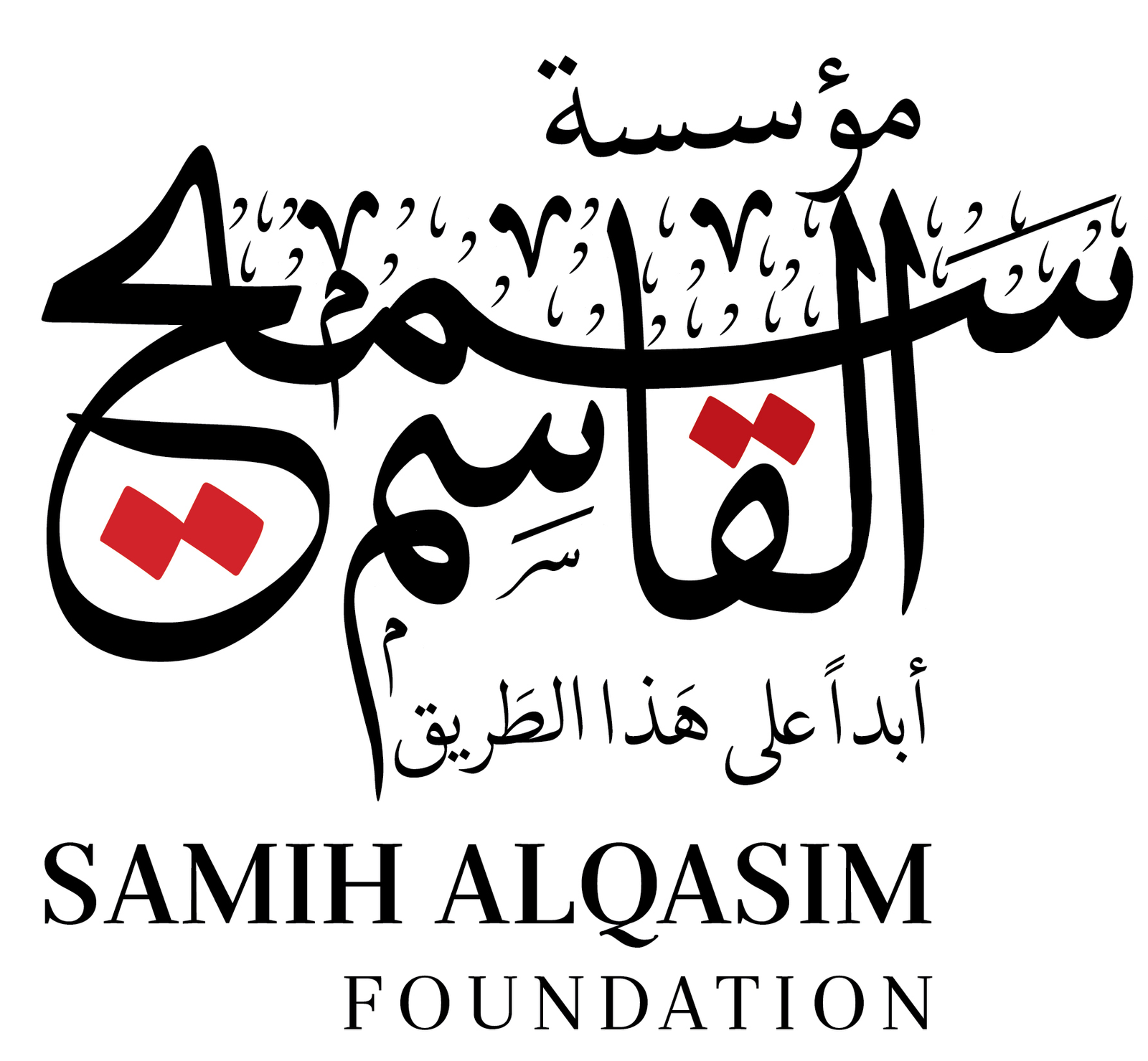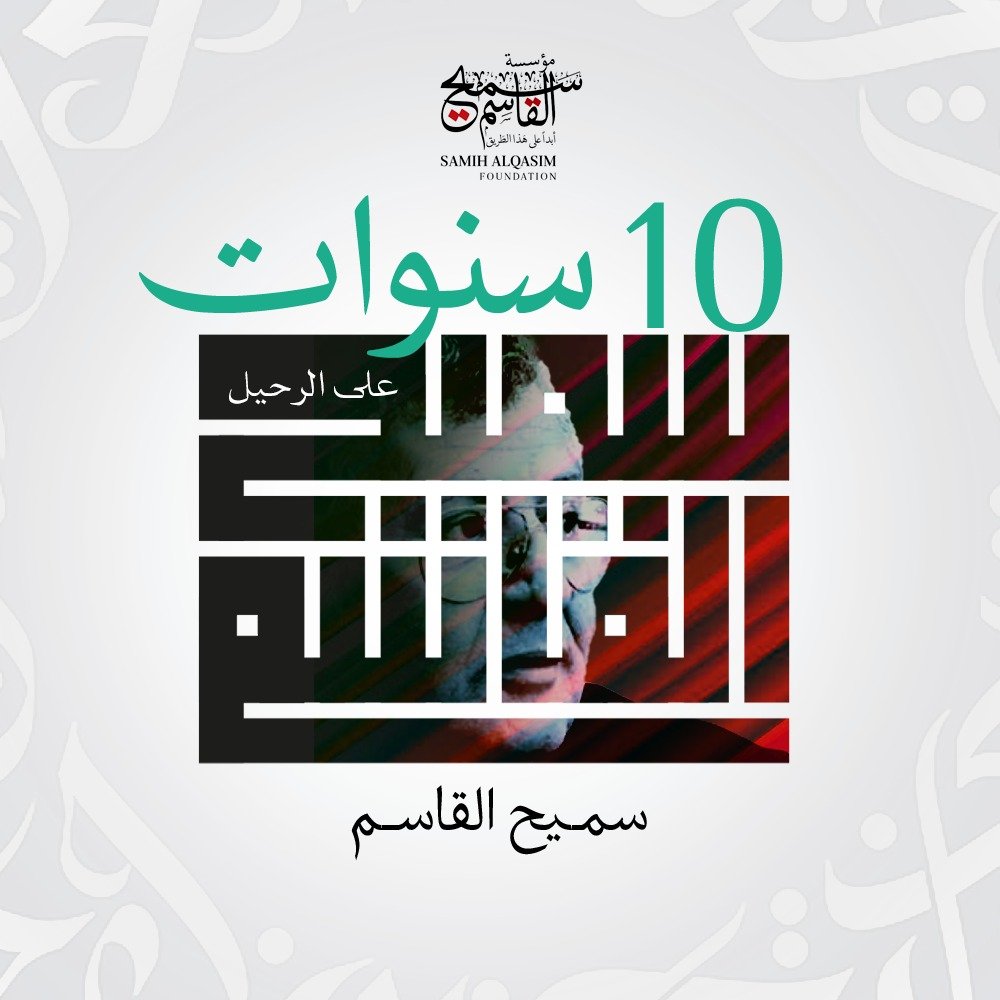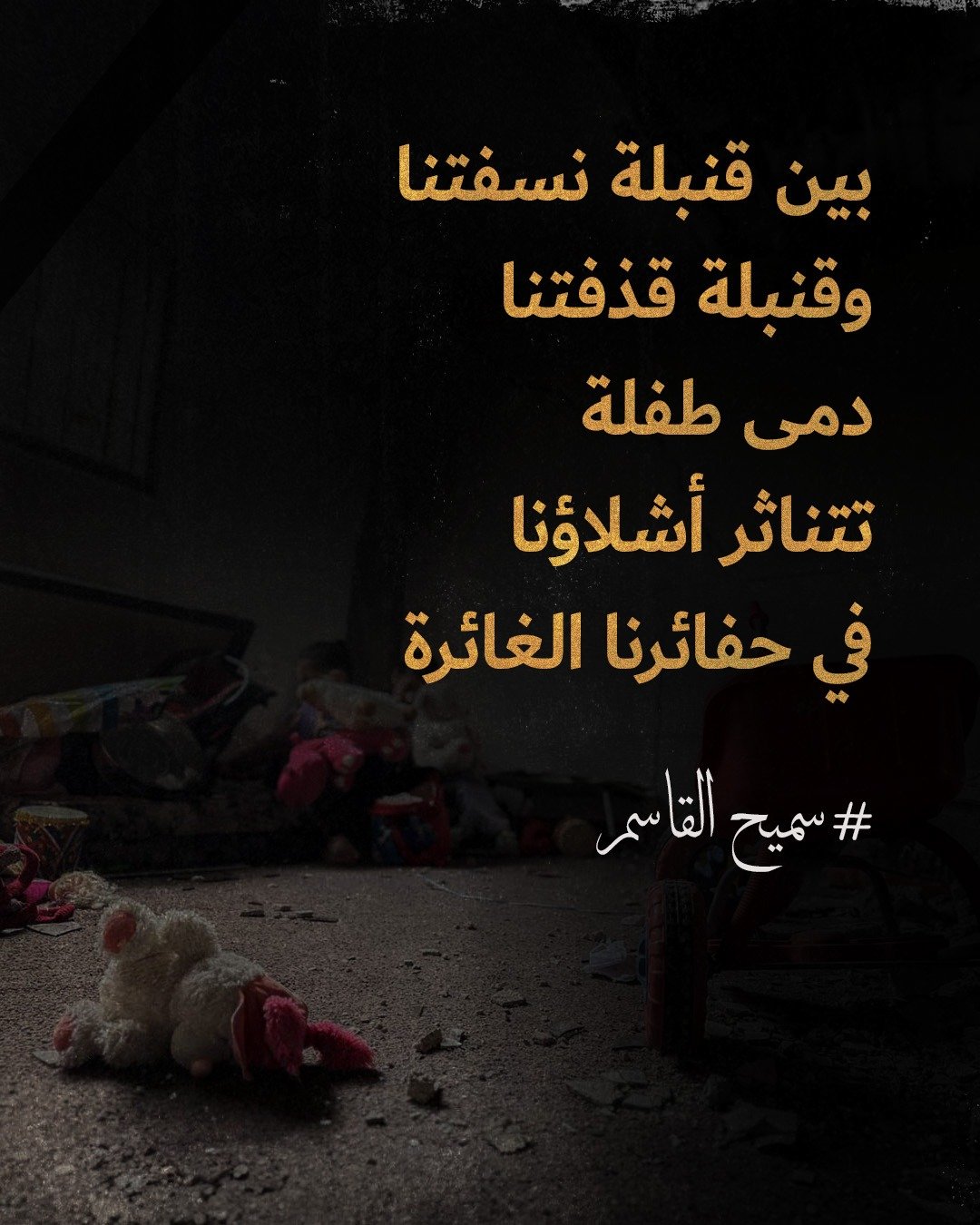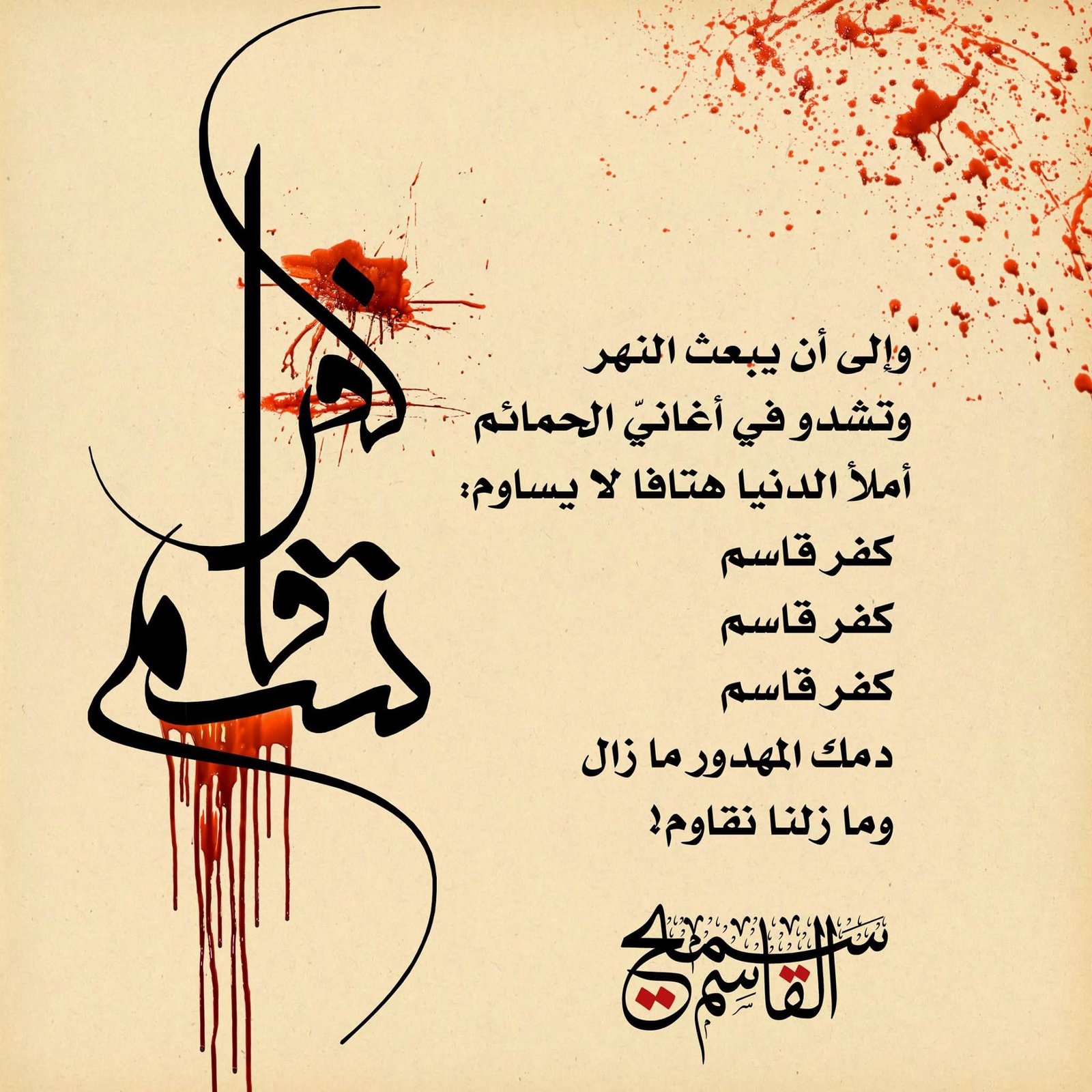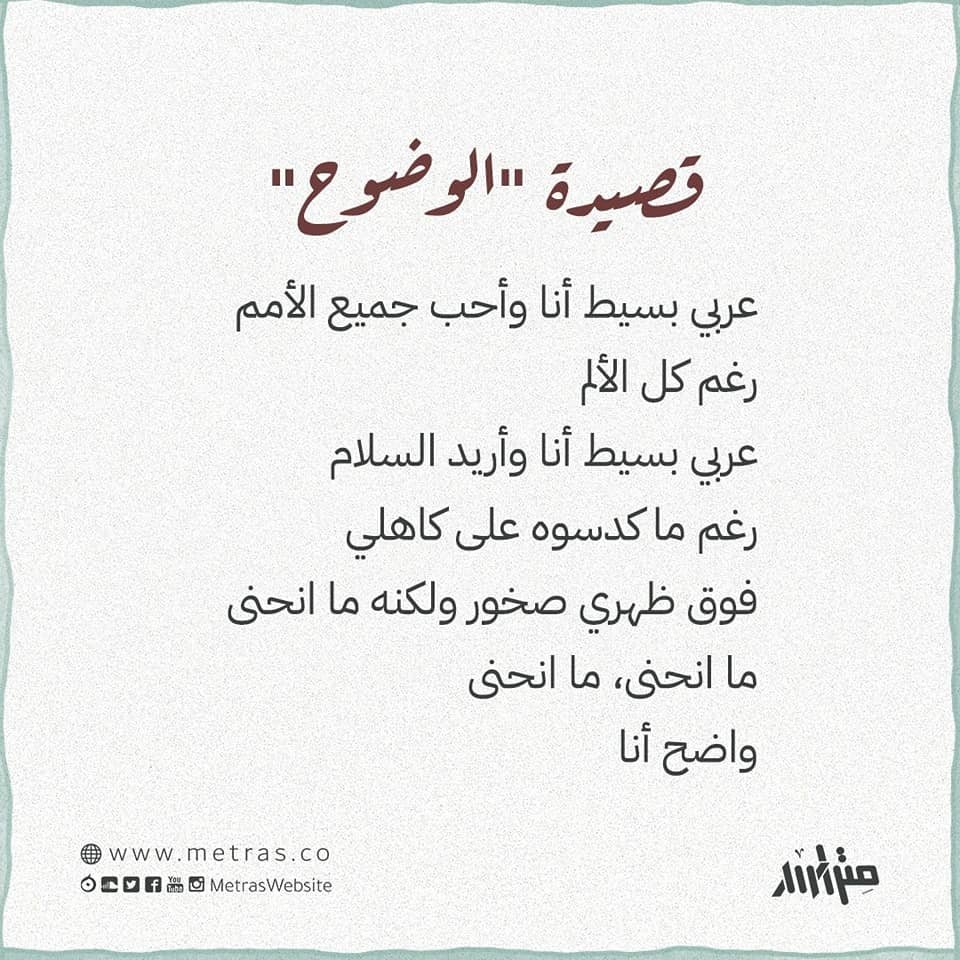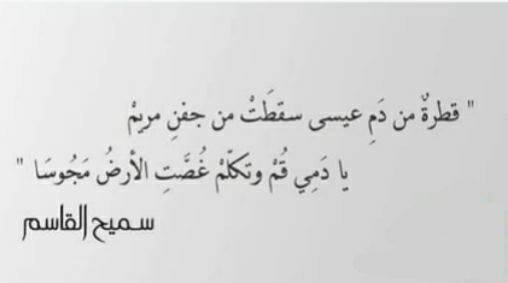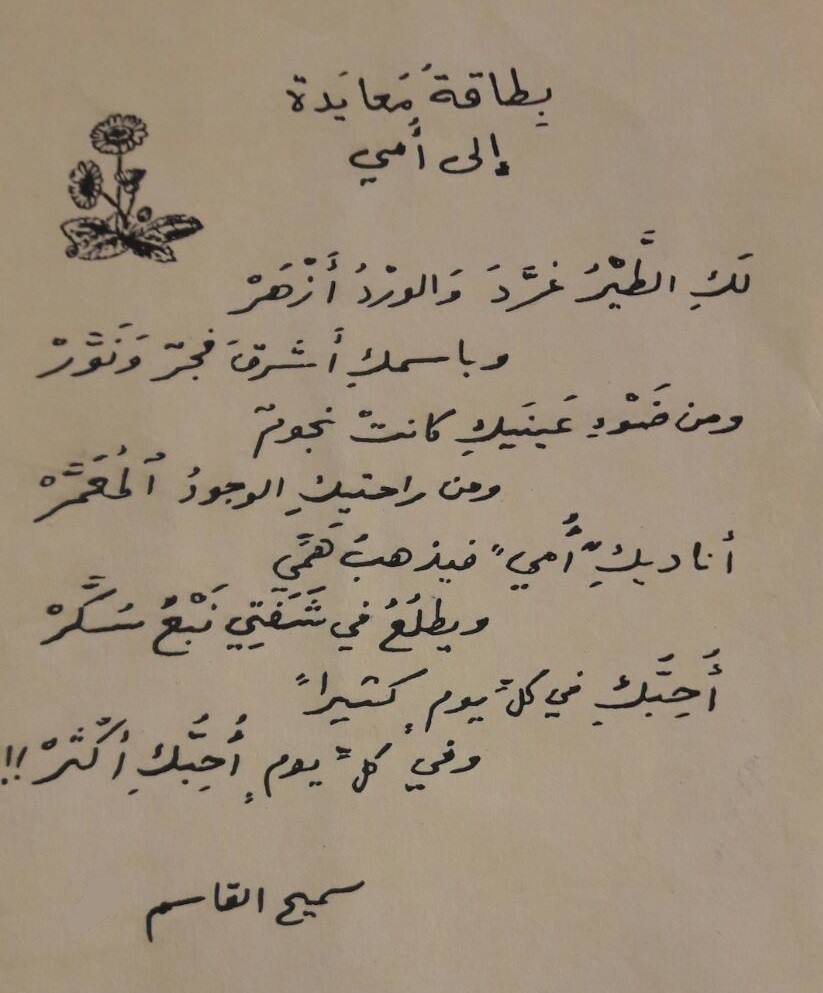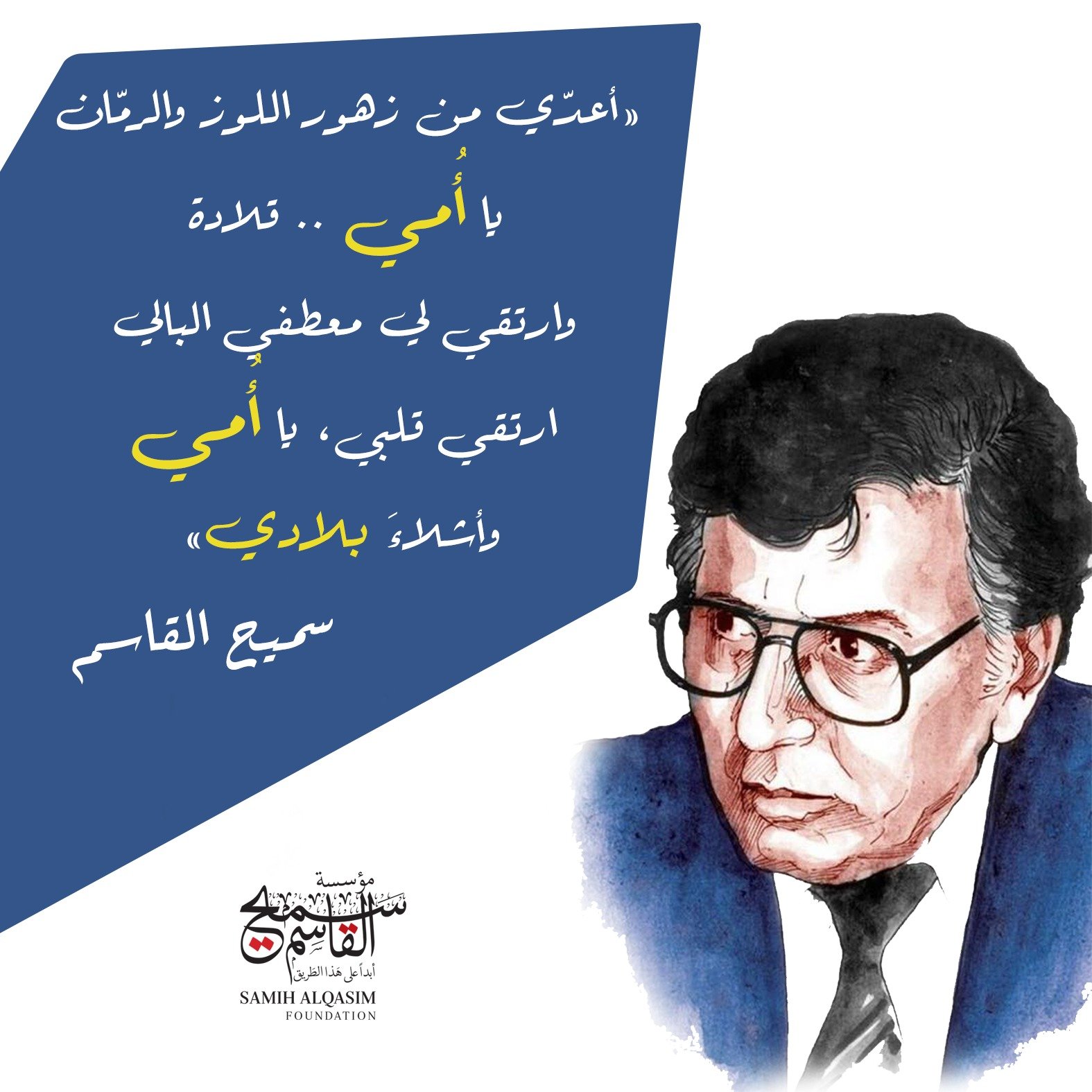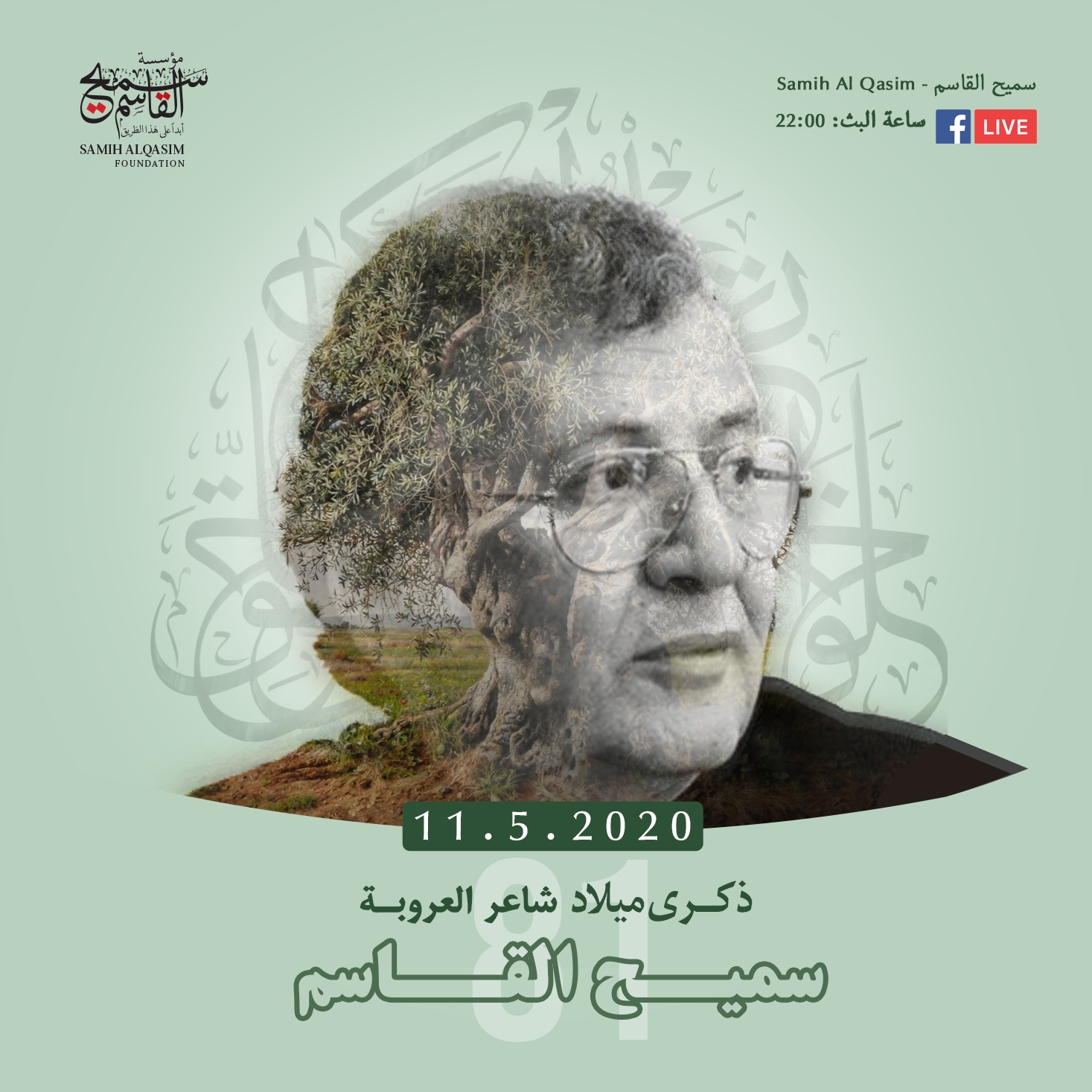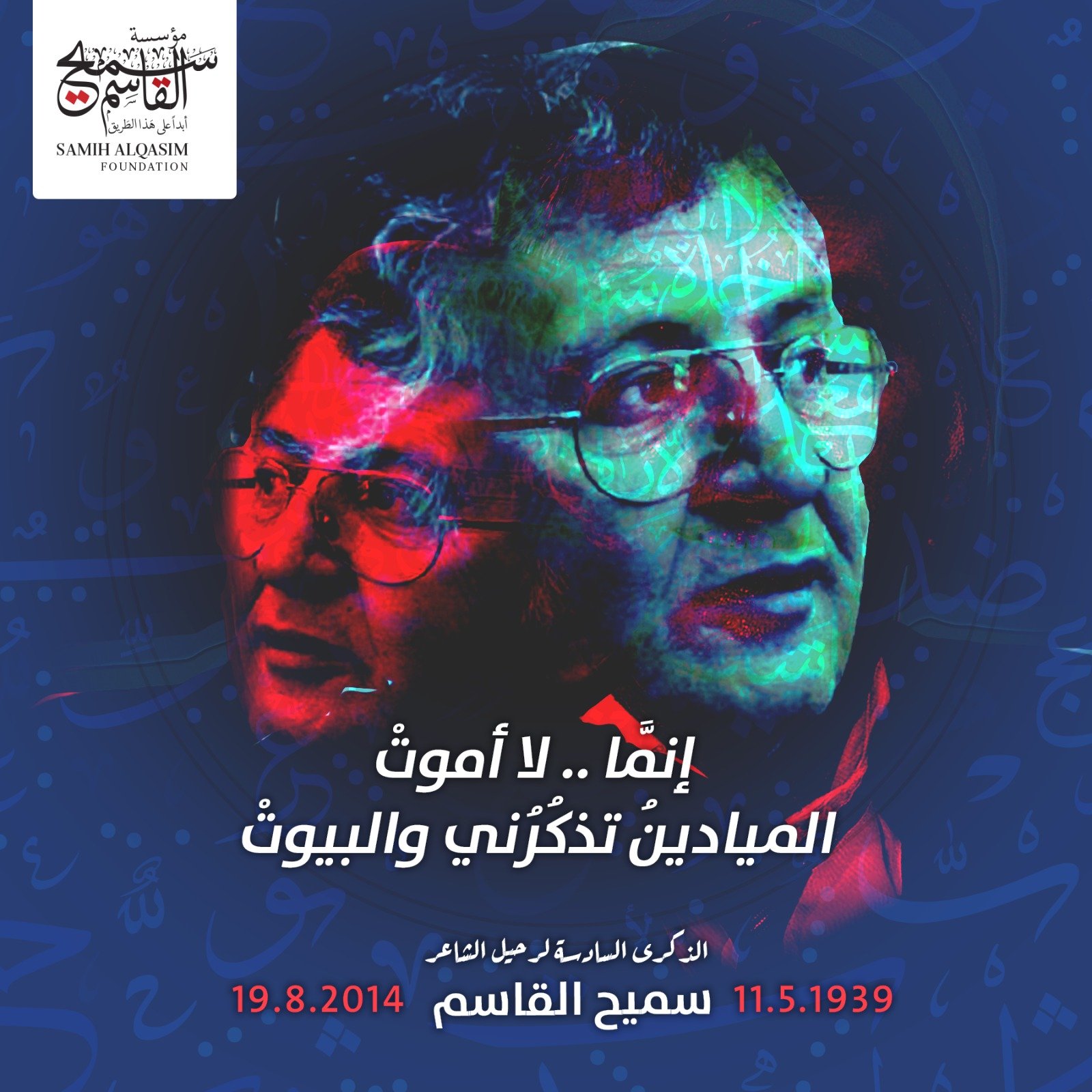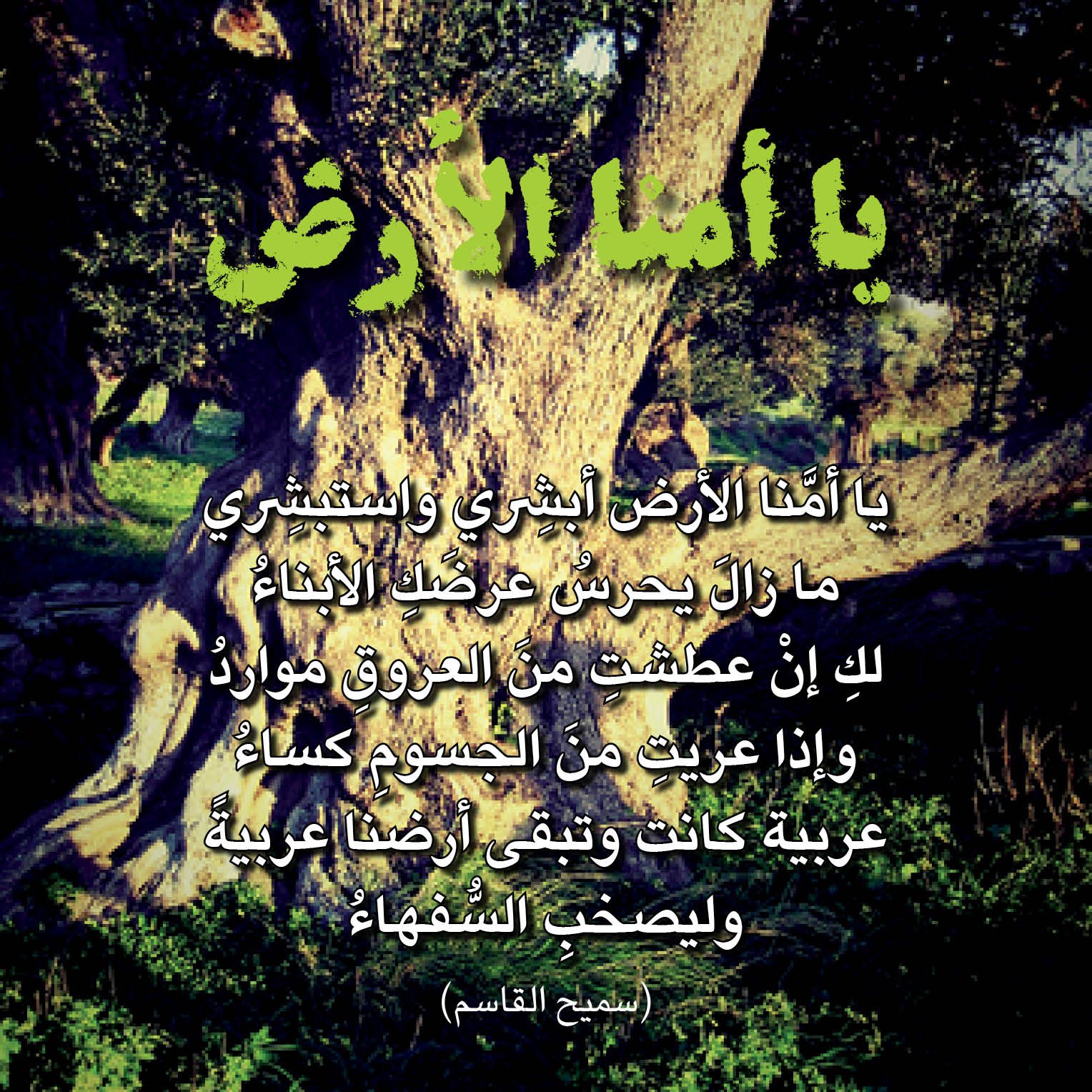The Poet
On May 11th, 1939, the Arab world bore one of its greatest poets. Samih Al Qasim was born into a Palestinian-Druze family who at the time resided in Zarqa, Jordan. His father, originally from al-Rama in the upper Galilee in Palestine, served in thhe Arab Legion of King Abdullah in Jordan. In 1941 Samih’s father completed his military service and moved Samih, his mother, his four brothers, and two sisters back to al-Rama where he began primary school. He continued his education at the Municipal Secondary school in Nazareth where he graduated in 1957.
The poet began his career as a government teacher in primary schools in the Galilee and al-Karmel, however, due to his political activism, the education minister dismissed him from his position as an educator. After his dismissal, he dabbled in many other professions including industrial worker, assistant electrical welder, a gas station attendant, and an inspector in the Urban Planning Department in Nazareth.
In 1958 Samih founded a secret organization called the Free Druze Youth Organization. The organization was estabished to campaign against mandatory military service amongst the druze population. In 1960 Samih was one of the first Druze to object to serving in the Israeli Military, as it was compulsory for the Jewish and Druze population in Israel. By defying the Israeli Military he was thrown into jail until they allowed him to complete non-military tasks.
Samih’s poetry journey began at a young age, he always enjoyed writing. In the 1960s he began his first job as a Journalist, working for a Hebrew magazine editing the Arabic edition. Soon he left that position and joined the editing board of al-Ittihad in Haifa where he resided.
Samih al Qasim with Mahmoud Darwish became the center of Palestinian Resistance literature. In 1973 he founded the Arabesque Publishing House in Haifa and was head of the Popular Foundation for Arts. Later on, he became the head of the Union of Arab Writers, editor in chief of Adhaat, and the honorary editor in chief of Kul al Arab (All the Arabs) until his passing.
The great poet wrote over 87 books that were published at publishing houses in Jerusalem, Beirut, Amman and Cairo. The majority of his work has been translated into Czech, English, French, German, Greek, Hebrew, Italian, Japanese, Persian, Russian, Spanish, Turkish, and Vietnamese. He also received many awards, shields, certificates of appreciation, and honorary memberships in several institutions.
On August 19, 2014, After a long battle with cancer, the great Palestinian poet passed at the age of 75, leaving behind all his work for the world to remember him by.
Videos
Selected Publications
All Faces but Mine

Read More>>
Just An Ashtray

Read More>>
Sadder than Water

Read More>>
Victims of a Map





